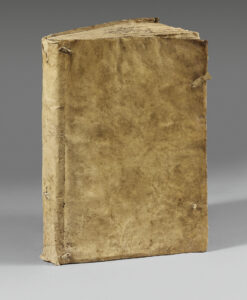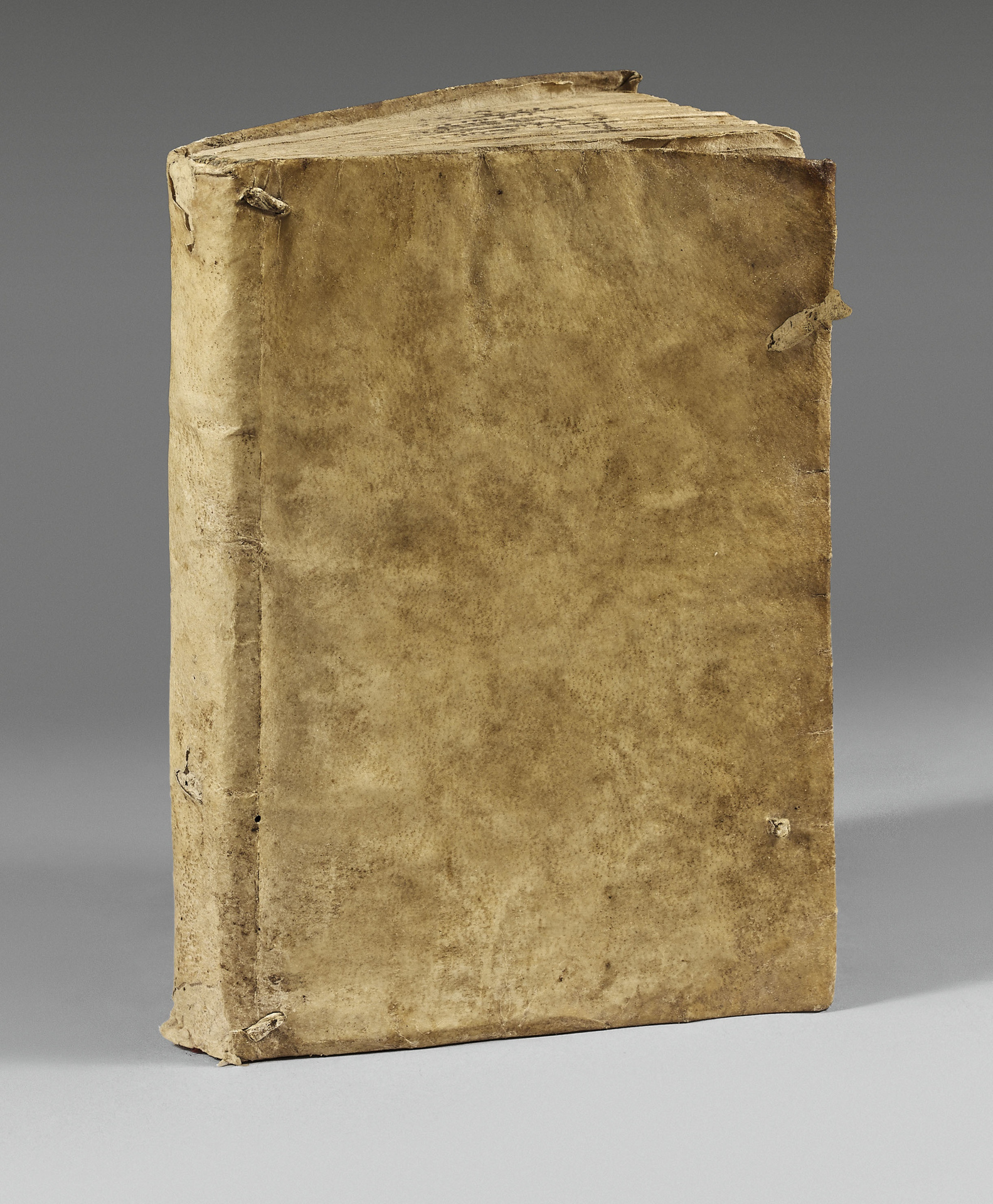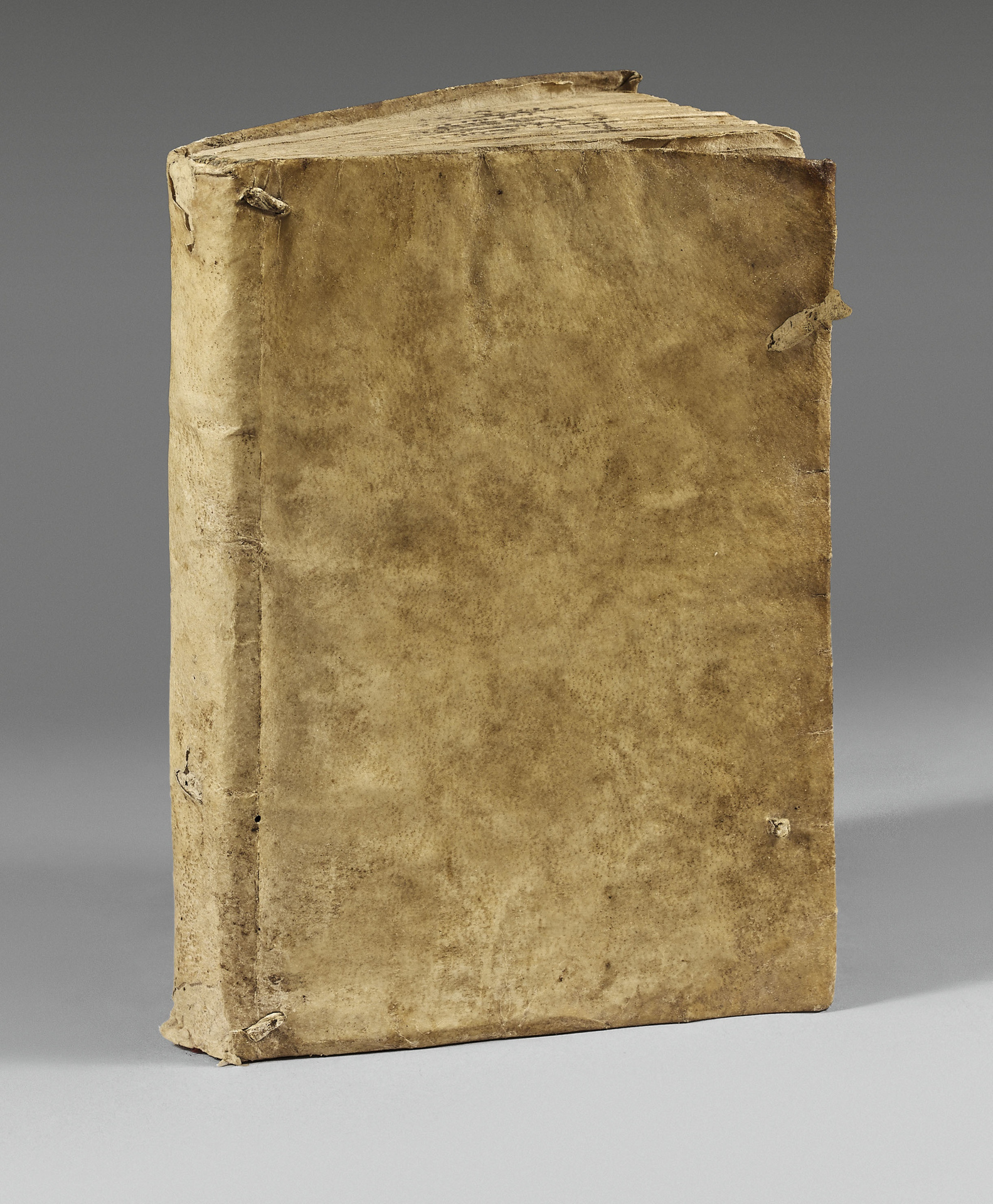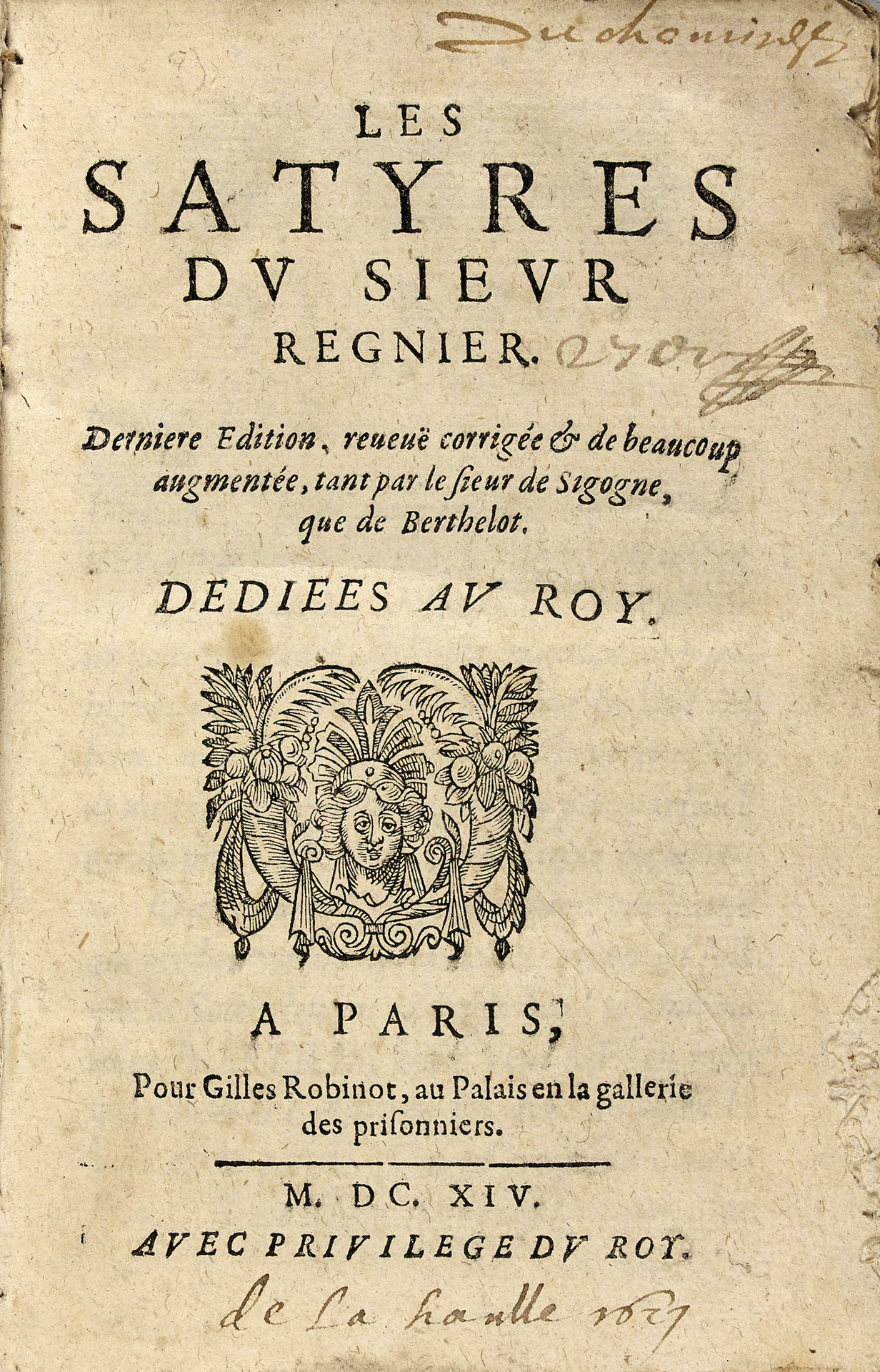Paris, pour Gilles Robinot, au Palais en la Gallerie des prisonniers, 1614. Avec privilège du Roy.
8vo [162 x 104 mm] of (4) ll., 123 ll., (1) privilege l. Title-p. slightly frayed, small worm track in the blank lower margin of ll. 83 to 88, small waterstain in the lower corner of ll. 104 to 112. On l. 93 begin the « Autres Satyres et Folastreries, tant du Sieur de Sigonne & Bertelot, qu’autres des plus signalez Poëtes de ce temps ».
Full limp vellum, remains of ties, flat spine, name of the author handwritten in ink at the time on the top edge. Contemporary binding.
Very rare first edition partly original of the extremely rare first issue of the “Satires” by Mathurin Regnier, much appreciated by King Henry IV, “the greatest satiric poet of the beginning of the 17th century” (Pa. D), published after his death, the fifth by chronological order, containing 16 satirical plays published here for the first time under this title: “Autres Satyres et Folastreris, tant du Sieur de Sigonne & Bertelot, qu’autres des plus signalez Poëtes de ce temps”, but the best.
Tchemerzine, V, 386.
“The first editions of Regnier, published in 1608, 1609, 1612, and 1613 during the author’s lifetime, are from a curious impropriety; it is because the poet, living the pot in his hands in taverns and gambling halls, absolutely unaware of his glory, was the most detestable proofreader imaginable; the editions that follow the death of the author, happening in 1613, are better.”
(Deschamps).
Mathurin Regnier is not only the greatest satirical poet of the early 17th century, he embodies like no one else the spirit of classical satire in verse, even in the eyes of Boileau, who would aim to be his disciple. He was born in Chartres, in 1573, while the Wars of Religion were raging.
The collection of Satires he published in 1608 propelled Regnier to the rank of leader of the Ronsardians, but also of the most impertinent comic poets of the time such as Sigogne, Motin and Berthelot, the tireless purveyors of collections of free poetry. Everyone agrees to recognize in him a quality of inspiration comparable to that of Horace, Perse and Juvenal.
“Regnier’s success is to have created a poetic space, where, from the commonplace of moral reflection, he can freely express his taste for openness and freedom. He develops there an aesthetic of mood, of nonchalance and caprice, which he puts at the service of friendship, but which he also considers as an instrument of individual emancipation in the sense of libertines. Failing to present certain wisdom, he stages a temperament, which makes the poem a place and a ferment of humor and pleasure. This vital and tonic impulse characterizes his comical verve. He conceives the verse as a solution that jubilantly resolves the insurmountable contradictions of moral life. This is why he tirelessly looks for the right word, the stroke of the mark, the engraved formula that is engrossed in memory and triggers a feeling of euphoria. He has, like few poets, the genius of the robust, energetic, bursting with tonicity alexandrine: Il m’est comme aux putains mal aisé de me taire (Sat. II, v. 96) ; (Je) sentis à son nez, à ses levres décloses,/Qu’il fleuroit bien plus fort, mais non pas mieux que roses (Sat. XI, v. 219-220) ; Je fis dans un escu reluire de Soleil (Sat. XII, v. 24). Failing to find the truth, Regnier arouses an impetus that draws from apathy and gloom, which restores the thrill and whirlwind of life, which knows how to recreate the clutter and the captivating hubbub of people and things, to delight of their contradictions. His realism is to be before Baudelaire a poet of the city, to immerse ourselves in the soft din of social poetry. For lack of knowing where, Regnier is “a force that goes”: the man has at least the power to oppose to the absurdity of living the energy of his humor and the pride of his nonchaloir. Like the greatest satirists, Regnier is a poet of the present time, the one who constantly annoys us, but who is confused with the movement and the gush of days.”
Precious and remarkable copy, one of the two recorded preserved in its first contemporary vellum binding from the very first issue before the mention added on the general title in the second issue “qu autres des plus signalez Poetes de ce temps”.



